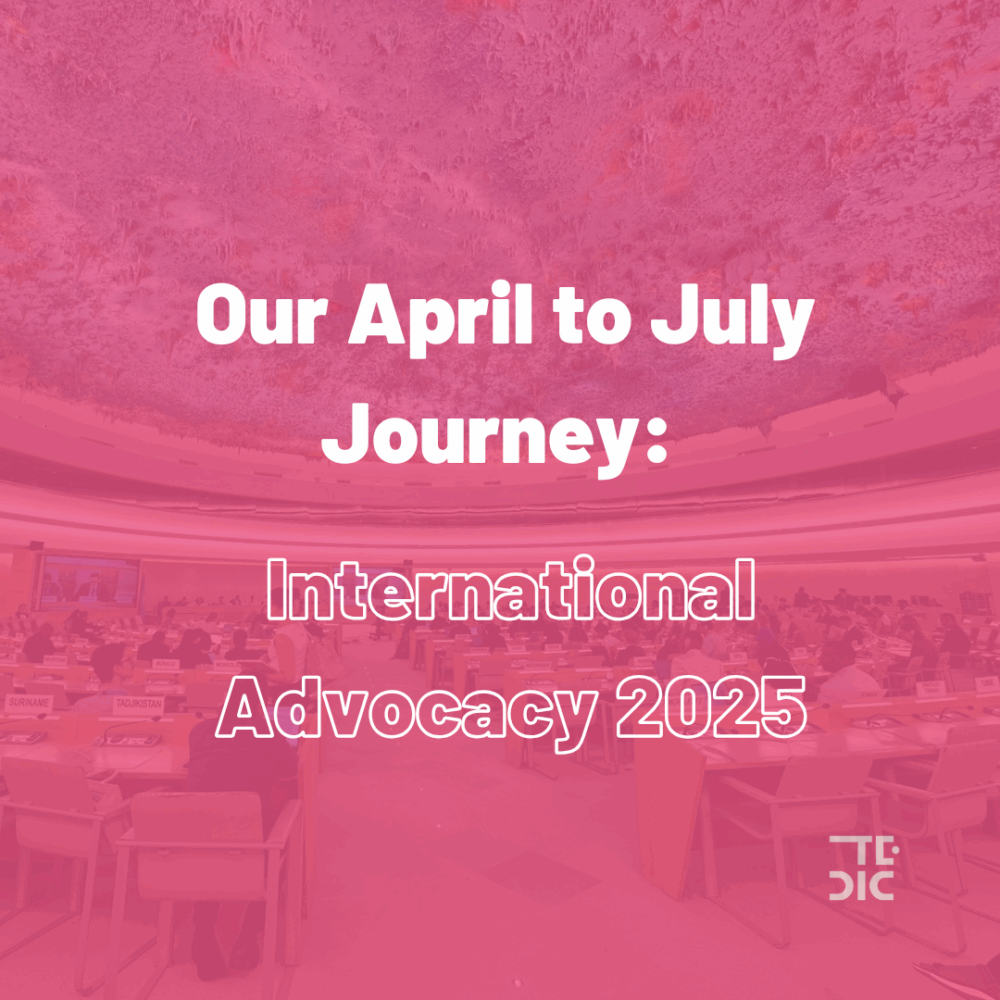
From April to July, we had a dynamic international agenda. We traveled through various regions and events, raising our concerns and demands in defense of everyone’s digital rights. During these months, our international advocacy also took place right here in our city, Asunción. Every step we take represents important progress toward people-centered technologies—used ethically and responsibly—and a free and secure internet.
Fighting for Platform Workers’ Rights
The first months of this second quarter were intense in our advocacy for the rights of platform workers. At the end of April, we hosted the Latin American Fairwork researchers’ meeting. With trade unions, media, and government representatives in attendance, we launched the Asunción Declaration on Platform Work in Latin America—a document addressing key issues such as occupational health and safety, algorithmic transparency, effective dispute resolution mechanisms, personal data protection, and the promotion of fair competition.
The Declaration was developed collaboratively with the Fairwork research network in Latin America, building on research using the Fairwork methodology in Argentina, Brazil, Chile, Colombia, Ecuador, Peru, Paraguay, and Uruguay.
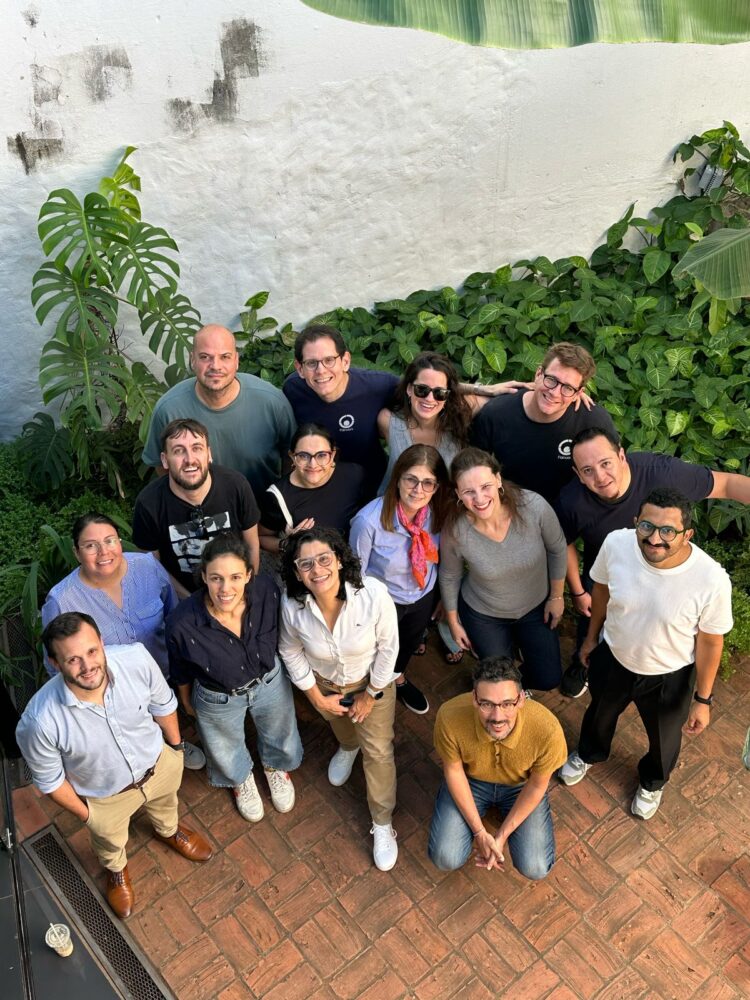
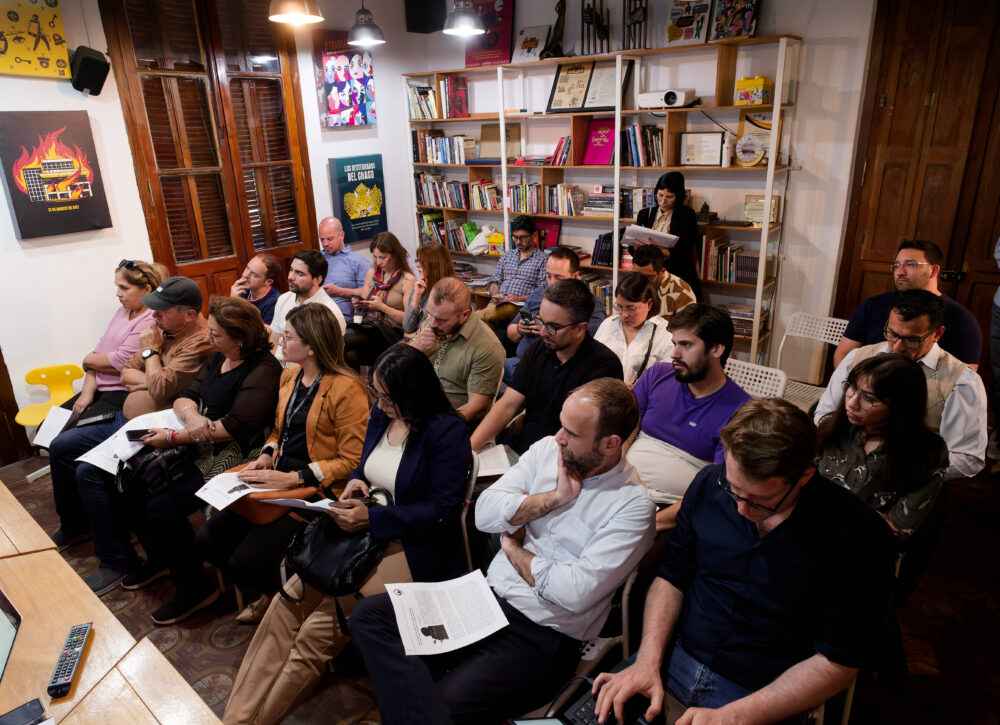
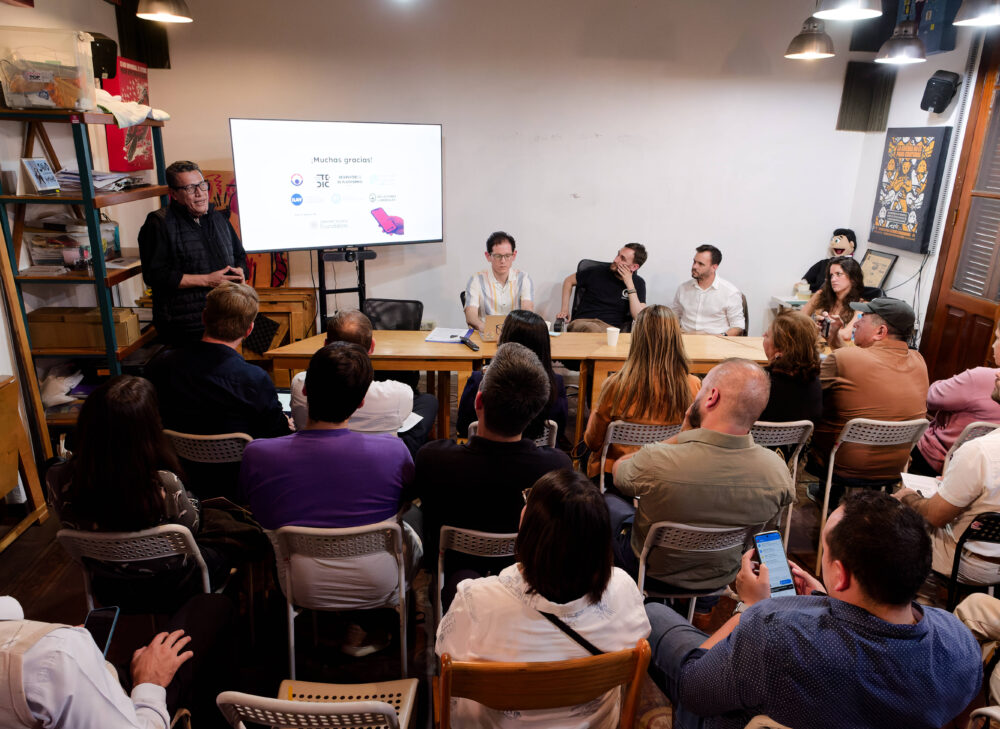
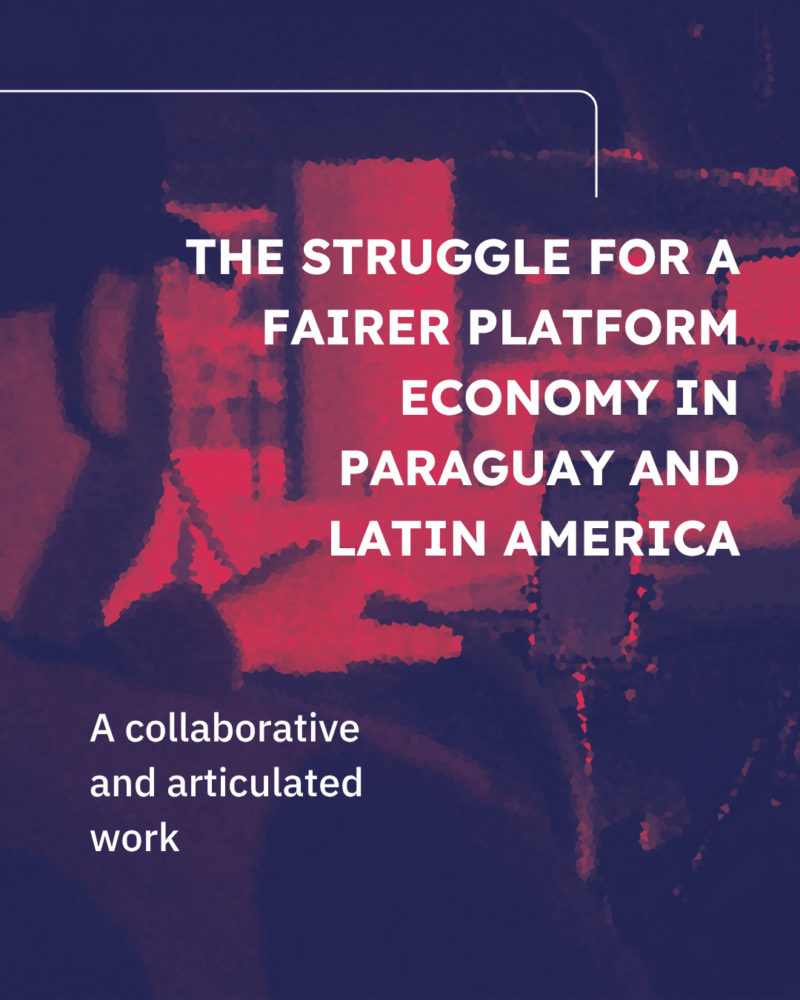
On June 2, the 113th International Labour Conference began, for which we submitted inputs based on this declaration. We called on participants to adopt a Convention accompanied by a Recommendation—a key step to ensure the protection of labor rights for workers around the world.
The launch of the declaration marked a milestone in regional coordination and kicked off a new phase of Fairwork research across eight Latin American countries. Over the next two years, digital platforms in sectors such as ride-hailing, delivery, and domestic work will be evaluated.
AI Ethics Expert Network Member
Since April, our Executive Director has been part of the AI Ethics Experts Without Borders (AIEB) network by UNESCO—an initiative that supports more than 50 countries in developing ethical policies and governance frameworks for AI, in line with the UNESCO Recommendation on the Ethics of AI.
Through AIEB, we are committed to ensuring that AI remains human-centered, upholds fundamental rights, and fosters a sustainable and inclusive future.
Freedom of Expression in the Age of AI
From May 3–7, our Executive Director, Maricarmen Sequera, attended World Press Freedom Day 2025 in Brussels, Belgium. The event, organized by UNESCO and the Government of Belgium, brought together journalists, activists, academics, media representatives, and civil society organizations.
We participated in private meetings focused on AI regulation and platform accountability. We discussed the challenges posed by automation, the use of personal data, and how to ensure that human rights and freedom of expression remain protected in increasingly AI-driven digital environments.
Stop Killer Robots: Consultations and Advocacy
As part of the Stop Killer Robots global coalition, we participated in the UN General Assembly’s informal consultations on Lethal Autonomous Weapons Systems (LAWS), held May 12–13 at the UN headquarters in New York.
These consultations, prompted by Resolution 79/62 (adopted on December 2, 2024, with the support of 166 countries), served as a key dialogue space between states, civil society, and experts to address the ethical, legal, and human rights concerns surrounding military AI technologies.
This was TEDIC’s second time participating in this international process as part of the Stop Killer Robots delegation—the first was in Vienna, alongside a national delegation of state representatives. Our presence reinforces TEDIC’s commitment to human rights in digital spaces and to promoting a people-centered approach in the face of lethal autonomous technologies.
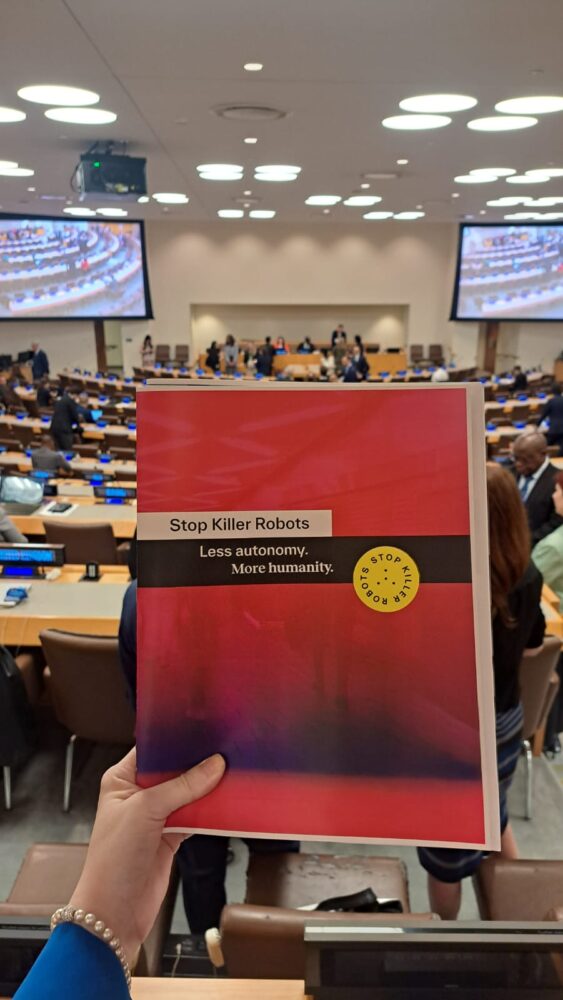
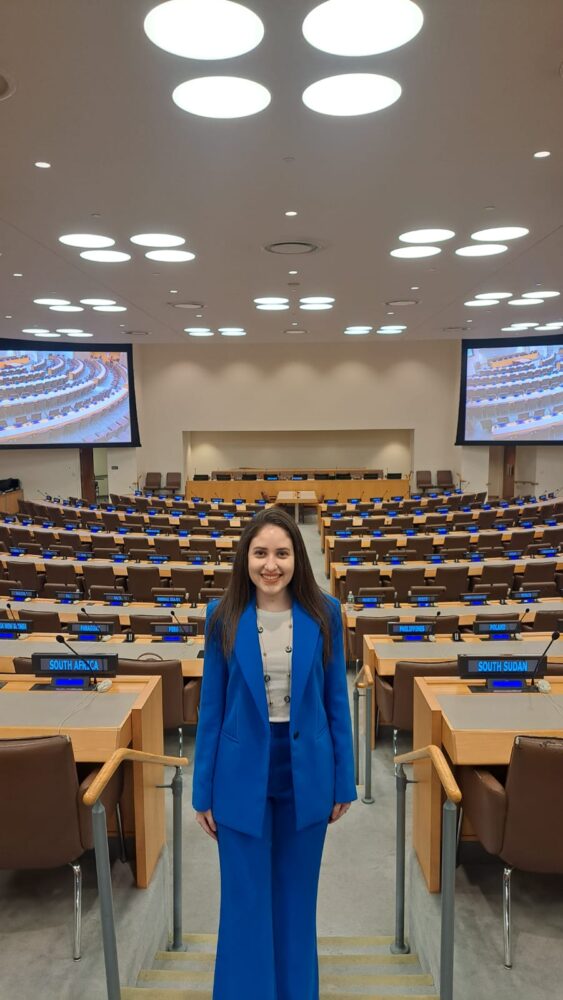
Press Freedom and Protection of Women Journalists
From June 16–20, we participated in the 59th session of the United Nations Human Rights Council, held in Geneva, in collaboration with Article 19 Brazil.
Our Executive Manager, Mariela Cuevas, engaged in various dialogues and delivered two presentations: one on the challenges and opportunities in protecting women journalists, and another on freedom of expression and democracy in the Americas.
We also took this opportunity to meet with other civil society organizations and distribute our research on elections and tech-facilitated gender-based violence targeting women in politics. Together with fellow activists, we raised our voices to denounce the genocide of the Palestinian people.
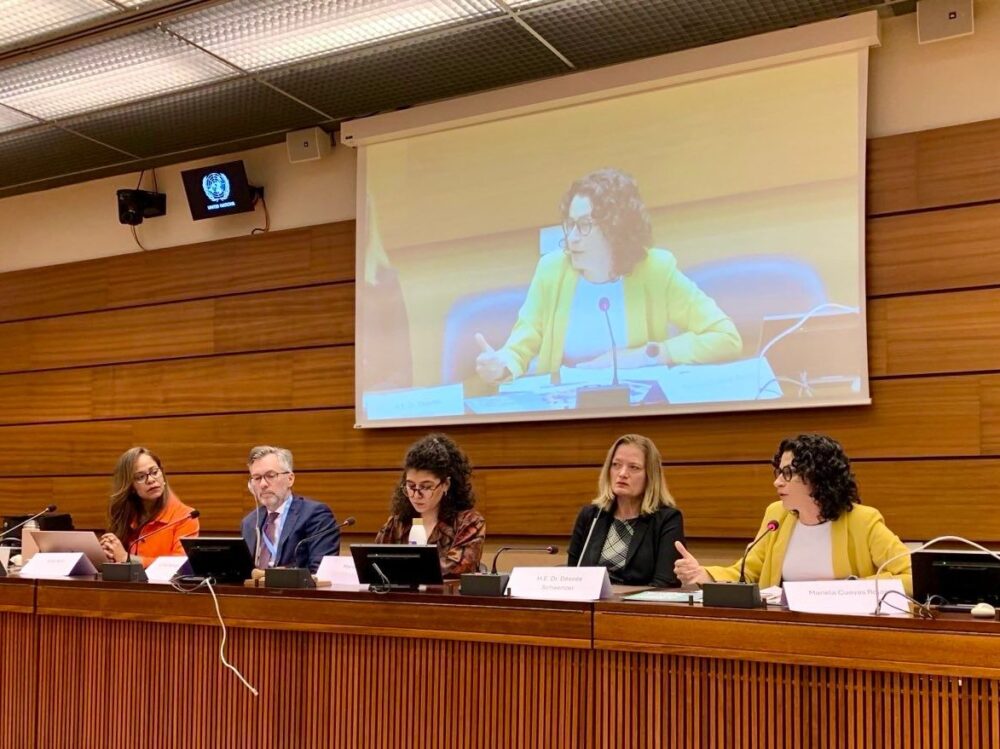
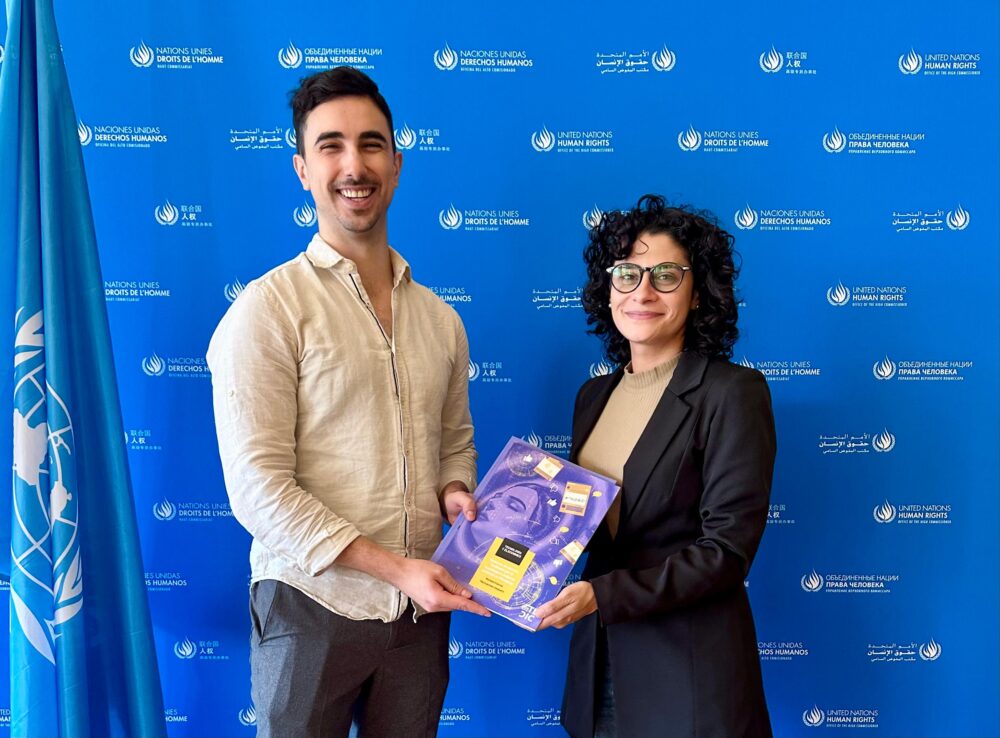
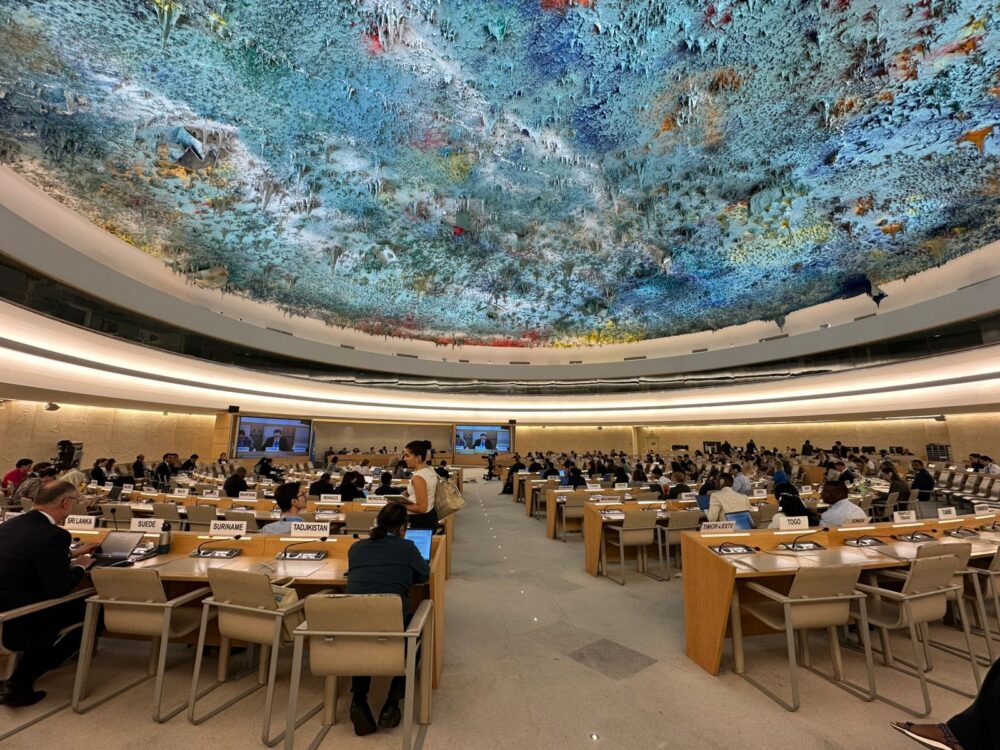
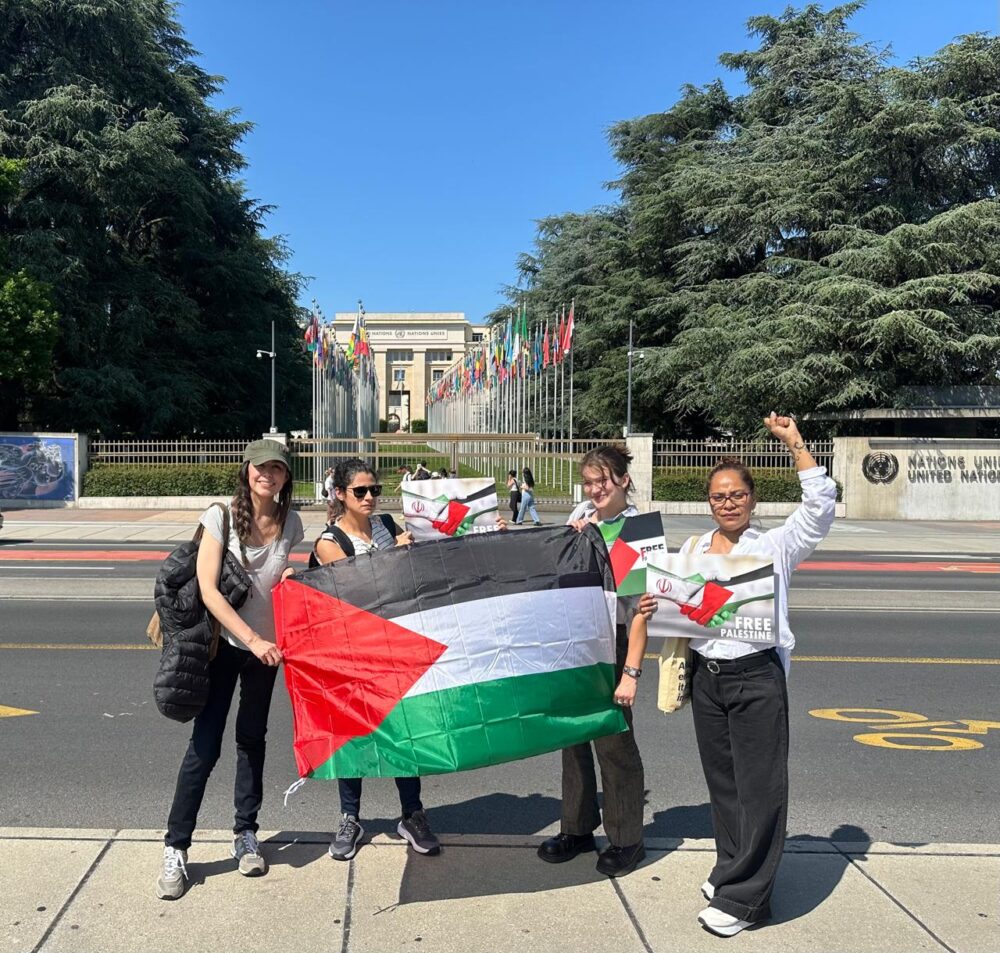
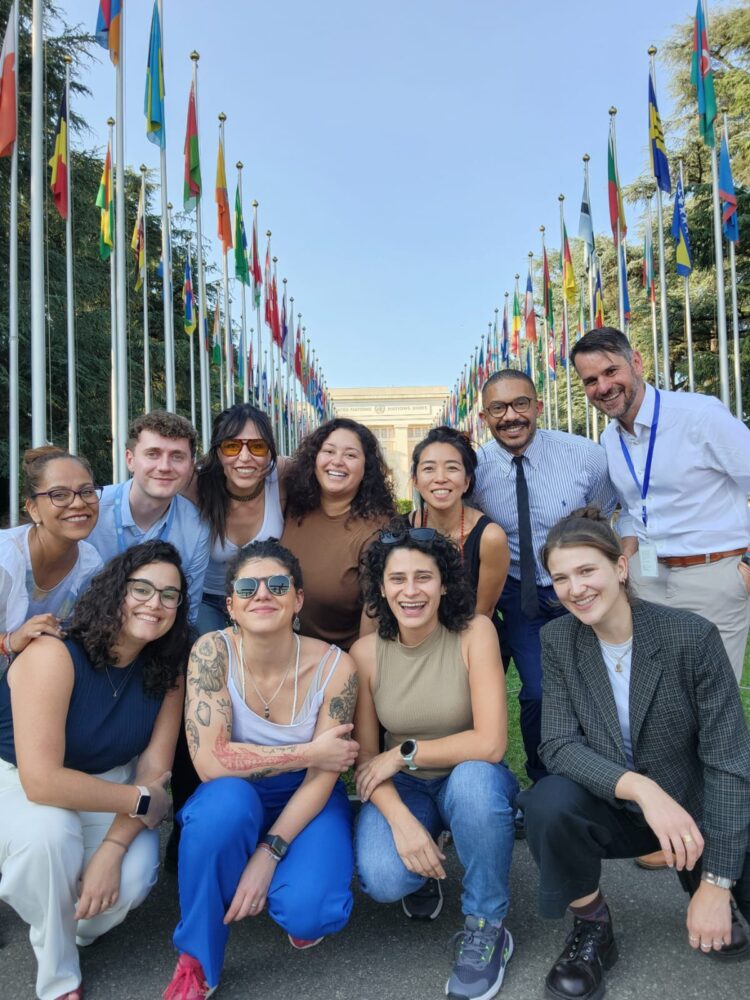
Financing and Social Justice
At the end of June and beginning of July, we participated in the 4th United Nations International Conference on Financing for Development in Seville, Spain.
As an organization working for human rights in digital environments, our participation in this event is driven by the pursuit of social justice and digital autonomy for all people, especially in the context of the Global South.
This conference represented a key opportunity to rethink and transform financing for development globally and move toward a more just and effective international financial architecture.
FFD4 brought together leaders from governments, international and regional organizations, financial institutions, the private sector, civil society, and the United Nations system to strengthen international cooperation and address the challenges that limit the investments needed to achieve the Sustainable Development Goals (SDGs).
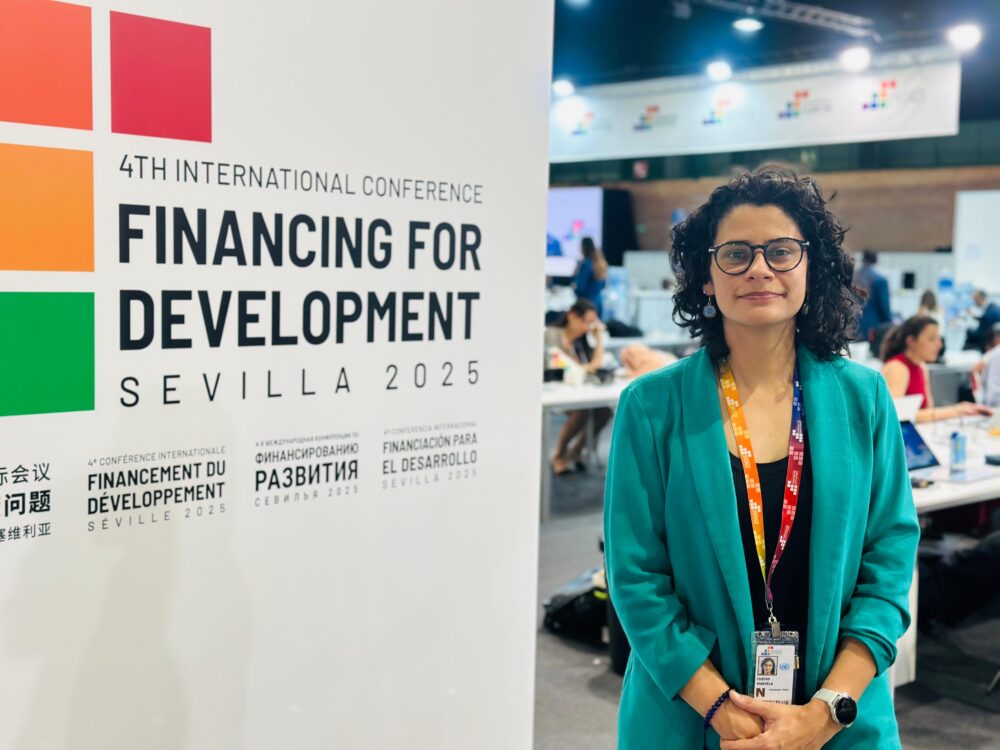
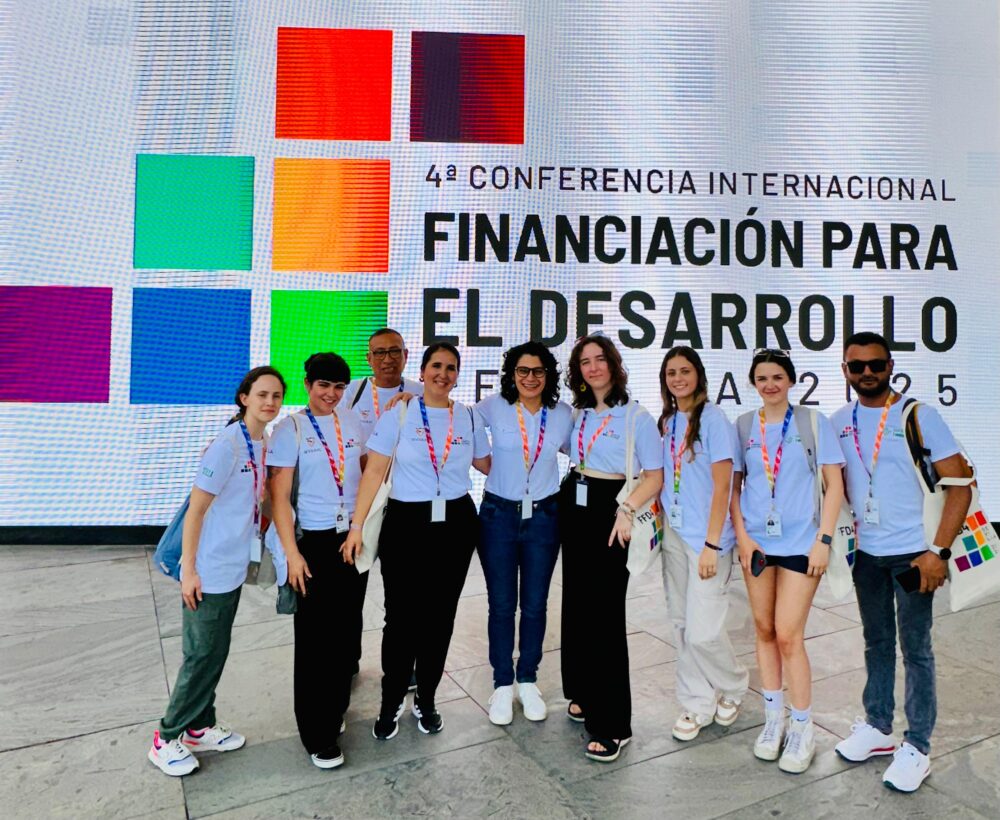
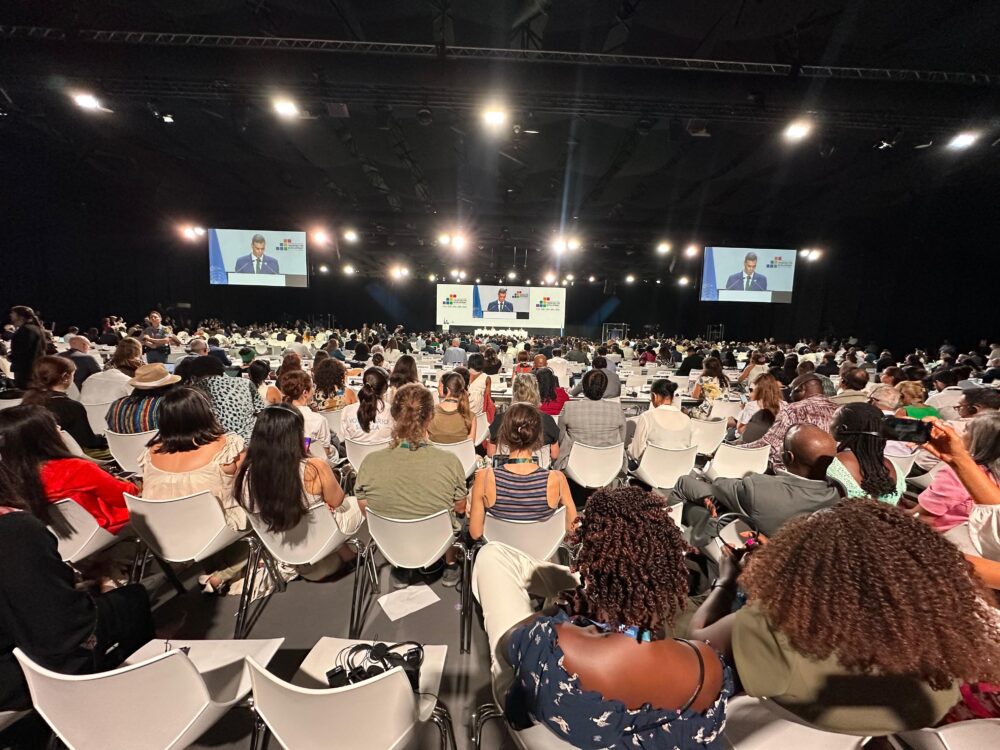
Internet Governance: Challenges and Opportunities
For the 11th consecutive year, we participated in the Internet Governance Forum (IGF), with our Executive Director, Maricarmen Sequera, representing TEDIC from June 23–27, including the zero day.
Now in its 20th year, the IGF remains one of the most important spaces for discussing Internet policy, technology, and human rights, under the umbrella of the United Nations. Alongside official meetings, we joined side events with other organizations to continue deepening strategic alliances.
At TEDIC, we see these forums as essential to strengthening democratic agreements and confronting current threats in both digital and physical spaces.
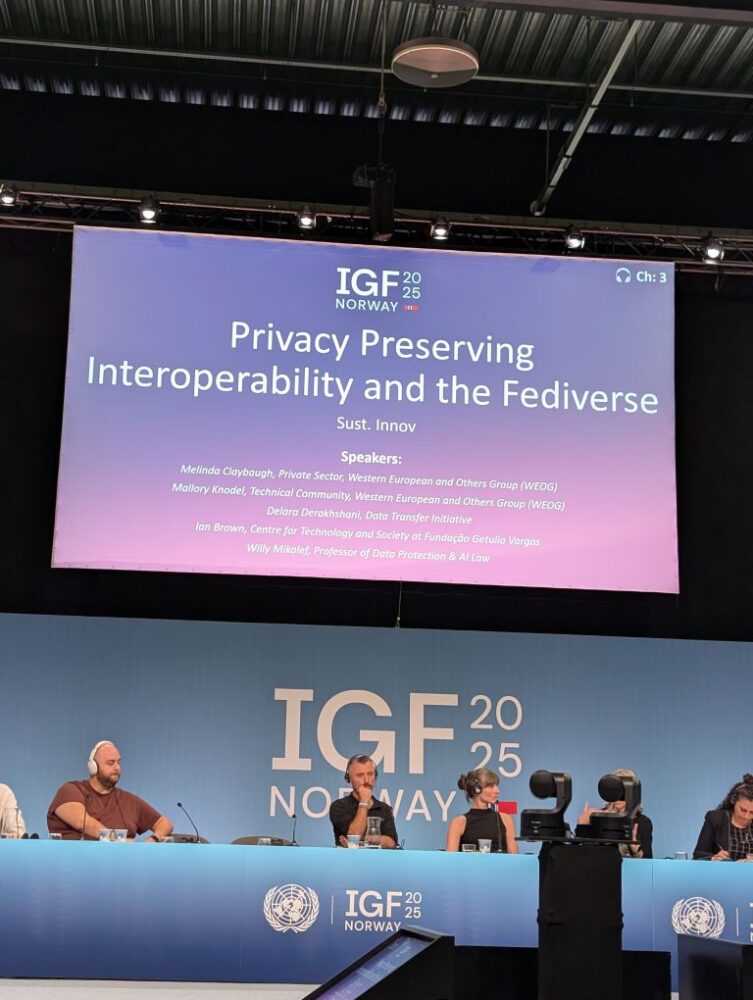
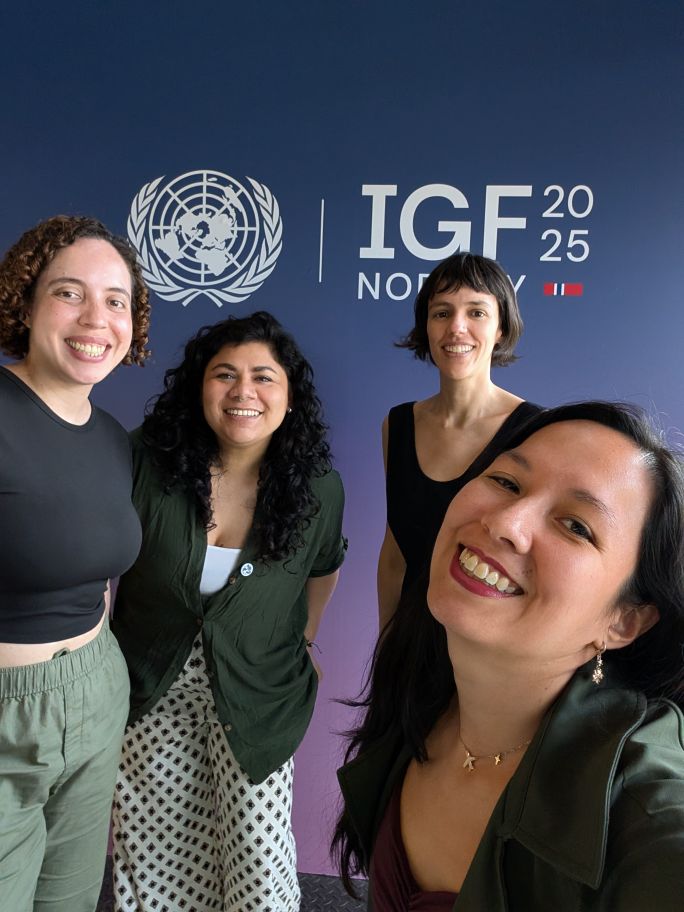
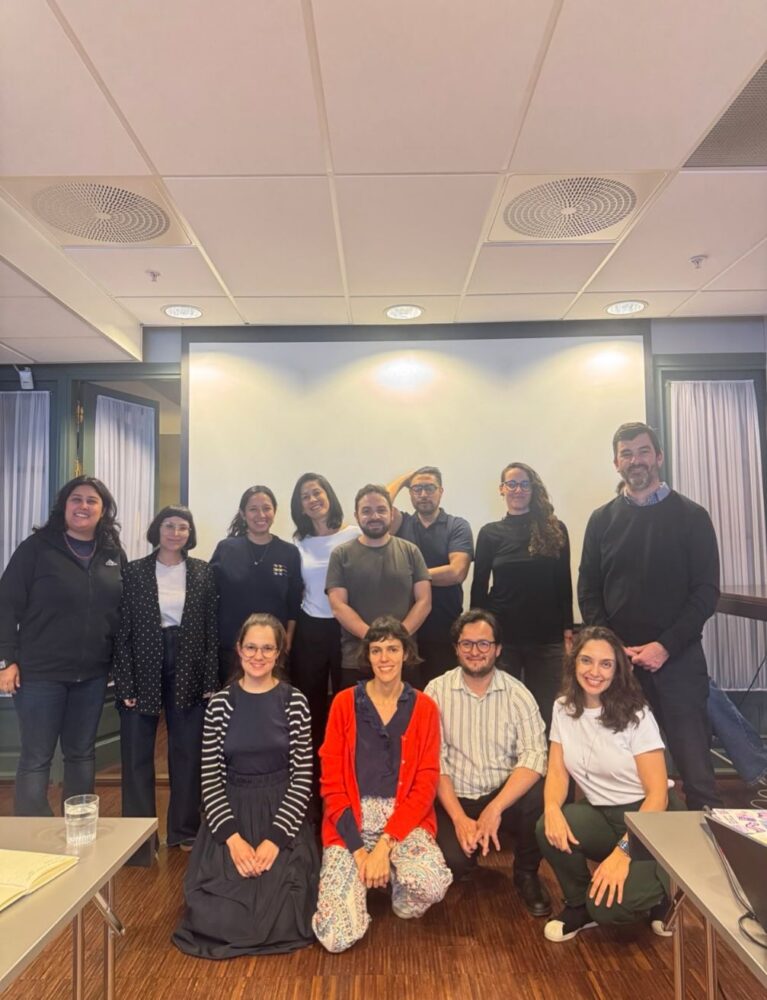
Dialogues for Future Advocacy
At the end of June, we participated in the Regional and Multi-Stakeholder Dialogue on Security and Democracy in Latin America, organized by the Spanish Agency for International Development Cooperation (AECID) under the Democracy Program, in Cartagena de Indias, Colombia.
This was a dynamic and participatory space that prioritized knowledge exchange and advocacy strategies across diverse sectors and territories. We reflected collectively on the main challenges and opportunities for security and democracy in Latin America and the Caribbean.
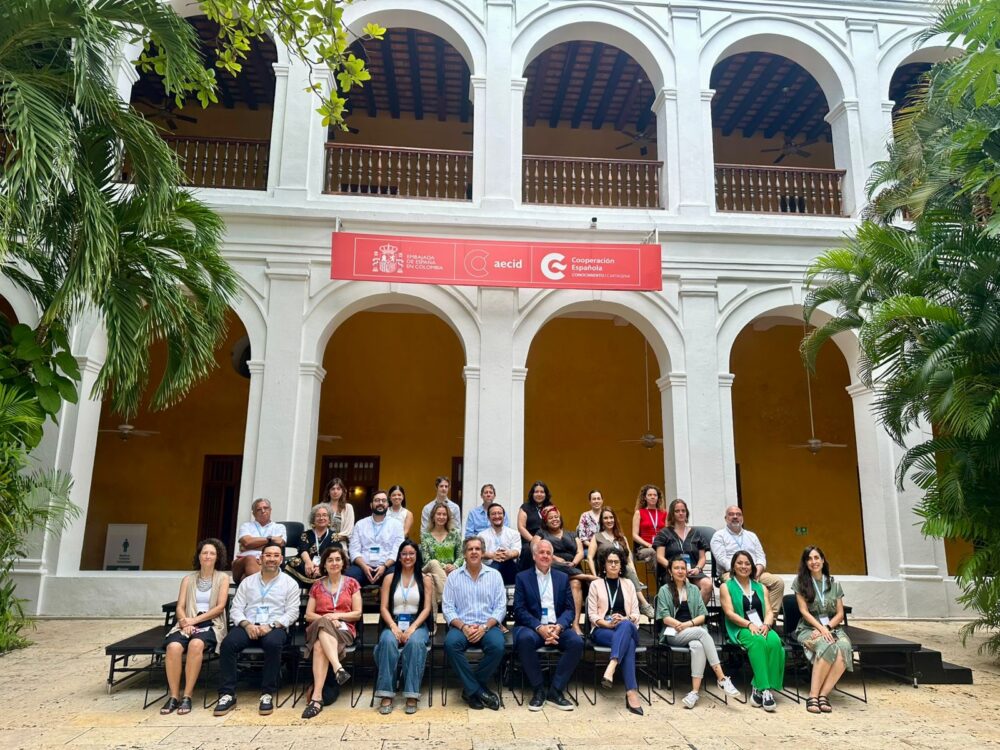
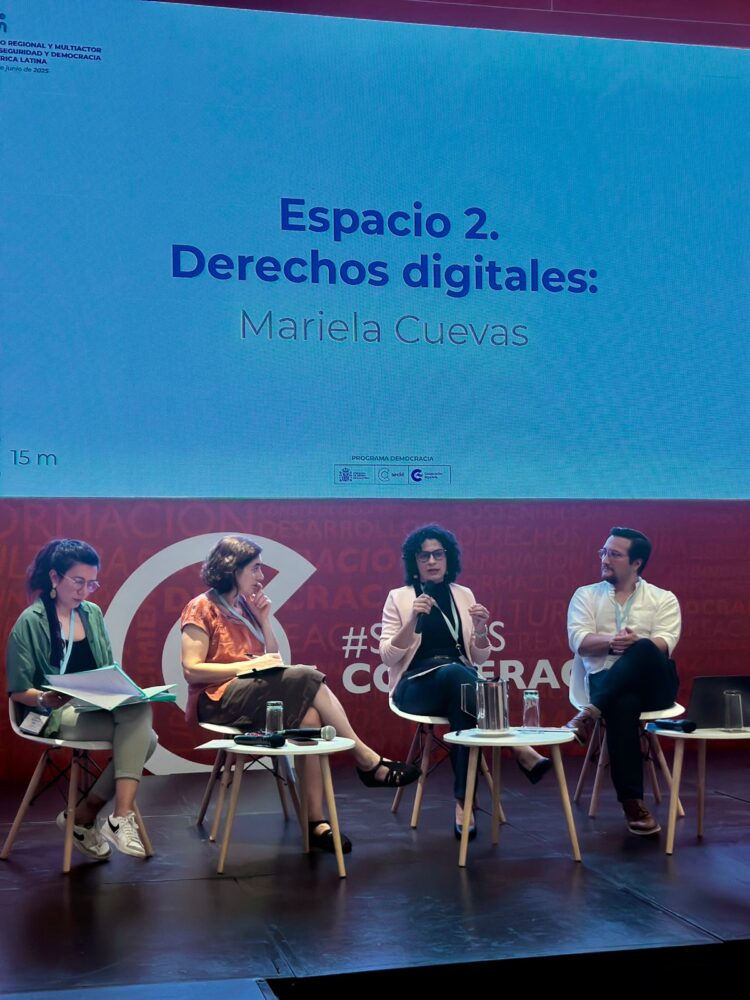
Meetings and Exchanges
- The Global Utopia: Shaping the Future with AI for Global Common Good – A virtual gathering of international experts discussing AI’s role in building just and equitable futures. We contributed a human rights and ethical tech perspective.
- Digital Rights and Inclusion Forum (DRIF) – A key global event in Zambia addressing digital era challenges. We joined the panel “Harnessing Civil Society’s Capacity to Use Open-Source Monitoring Tools for Digital Threats.”
- CryptoRave – Latin America’s largest open and free event on cryptography, privacy, and internet security, held annually in São Paulo, Brazil. We co-organized the panel “Facial Recognition in Football Stadiums in Brazil, Mexico, and Paraguay” with allies R3D (Mexico), IDEC (Brazil), and CESeC (Brazil).
- Cybersecurity in Our Own Words – A campaign led by the OAS, Mexico’s Foreign Affairs Ministry, and the National Institute of Indigenous Peoples, focusing on Indigenous children’s perspectives on cybersecurity. TEDIC shared our 13+ years of work on cybersecurity in Paraguay.
- 5th International Congress on Identities, Inclusion, and Inequality – An academic and civic space focused on border territories (geographic, cultural, linguistic). We presented “From Code to Body: Identity Disputes in Designing Digital Futures,” inspired by our 2024 research “Rethinking and Redesigning a Safe and Inclusive Metaverse.”
- Experience Exchange Seminar: Protection of Women Journalists and Communicators – Held at Article 19’s São Paulo office. We shared our years of work on tech-facilitated gender violence, especially against journalists, communicators, and women in politics, while building protection networks and strategies for safer digital spaces.
- Abrelatam-ConDatos – Latin America’s key event on transparency, open data, and open government, held in La Paz, Bolivia. We participated virtually, sharing experiences and research on digital rights, gender-based tech violence, and defender safety.
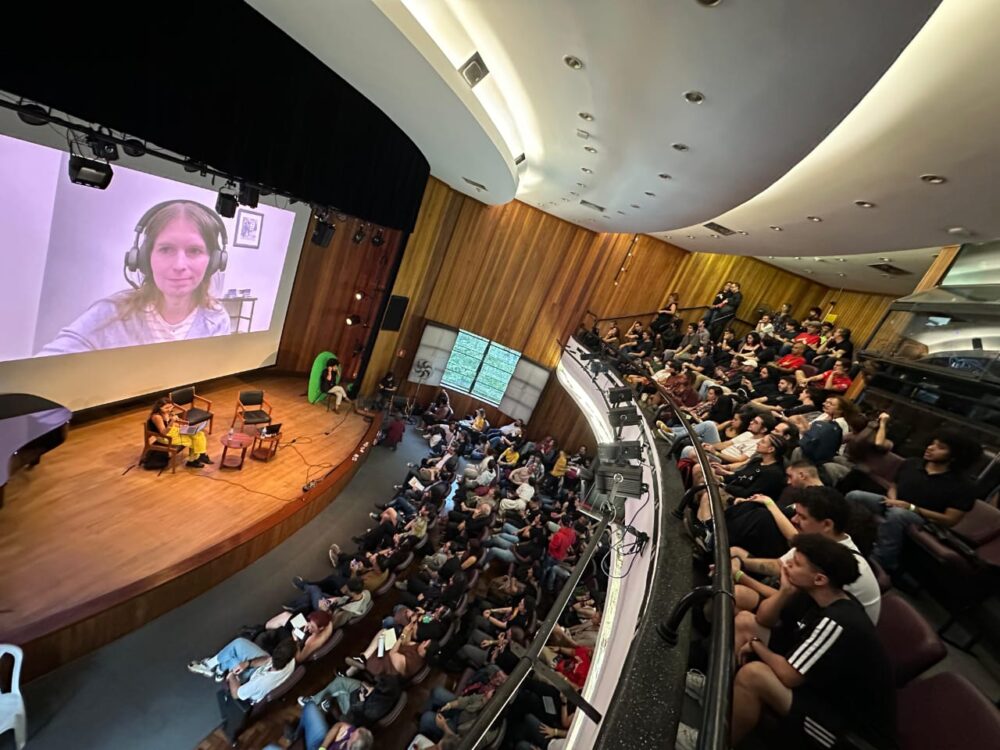
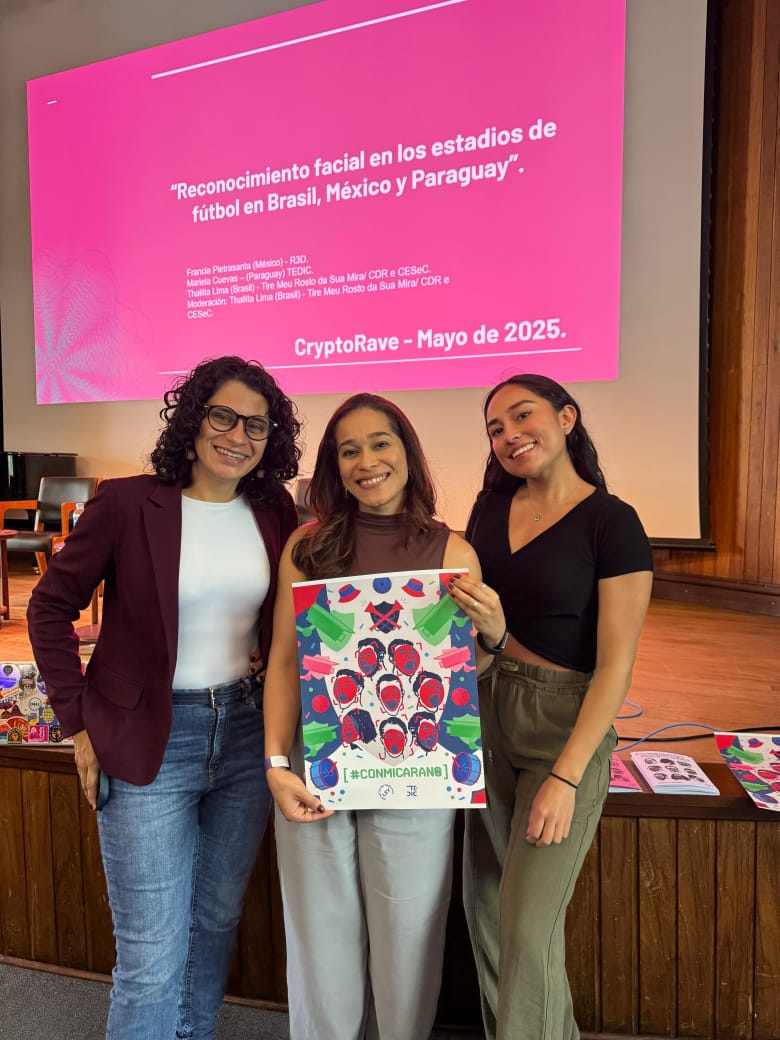
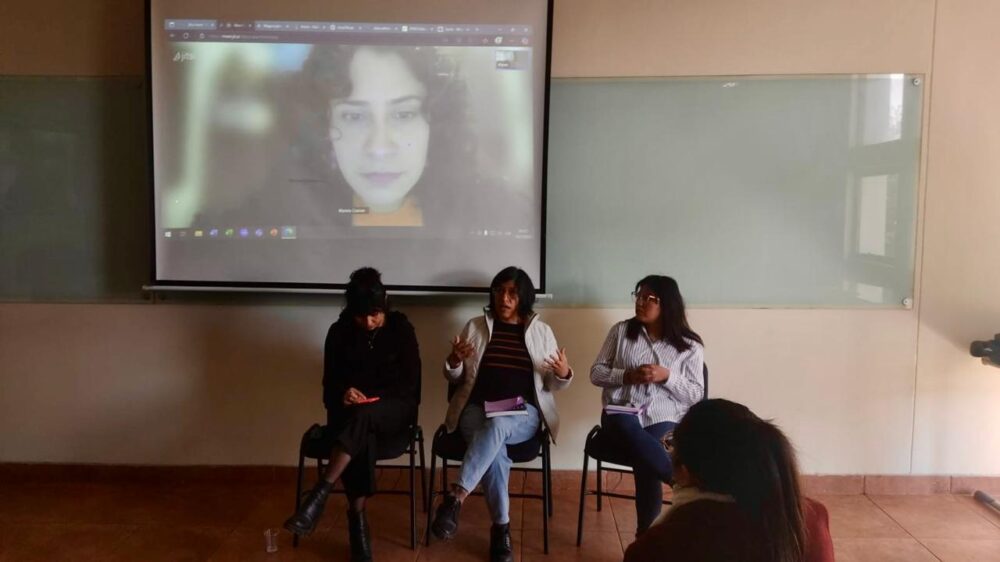

Protecting Environmental Activists: Our Digital Rights Contributions
We contributed to two special rapporteur calls regarding the protection of human rights defenders working on climate change and a just transition.
From TEDIC, we focused on issues affecting rural, campesina, and Indigenous defenders in Paraguay, including internet access, digital security, hate speech, and tech-based gender violence.
- We contributed to the OHCHR’s regional report, coordinated by Derechos Digitales, with organizations like Nupef (Brazil) and TEDIC (Paraguay). Our contribution highlighted the impacts of extractivist models—especially agribusiness—on campesino and Indigenous communities, and the risks faced by climate and digital activists.
- We also contributed to the Special Rapporteur’s report on defenders working on climate and just transitions, alongside Derechos Digitales and Nupef. The report analyzes how ICTs can either combat or exacerbate the risks faced by these defenders. Recognize and protect environmental and digital defenders, and penalize criminalization and harassment.
Some recommendations:
- Avoid using mass surveillance tech such as facial recognition—especially when funded with public resources meant for basic rights like connectivity.
- Ensure full internet access in rural and historically marginalized areas to support civic participation in climate policy discussions.
- Prevent arbitrary internet shutdowns during protests or mobilizations.
- Develop cybersecurity frameworks that respect international human rights standards and ensure the safety of defenders.
- Include civil society in the design of digital and environmental policies, ensuring transparency, access to information, and accountability.
Also…
As part of the Association for Progressive Communications (APC) network, we signed a statement—alongside other civil society organizations—expressing deep concern over the U.S. government’s unprecedented decision to sanction Francesca Albanese, the UN Special Rapporteur on the situation of human rights in the Palestinian territories occupied since 1967.
This measure represents a dangerous attempt to silence human rights experts and undermine international accountability mechanisms. In the statement, we called on the U.S. government to immediately lift the sanctions against Francesca Albanese and refrain from any actions that obstruct the work of UN mandate holders.
Moving Forward Together
This quarter, we brought our recommendations and demands on freedom of expression, press freedom, AI regulation, autonomous weapons, platform workers’ rights, and protection of environmental activists to international arenas. Through this advocacy, we continue to strengthen democratic commitments and push for equitable societies that prioritize inclusion and safety—online and offline.

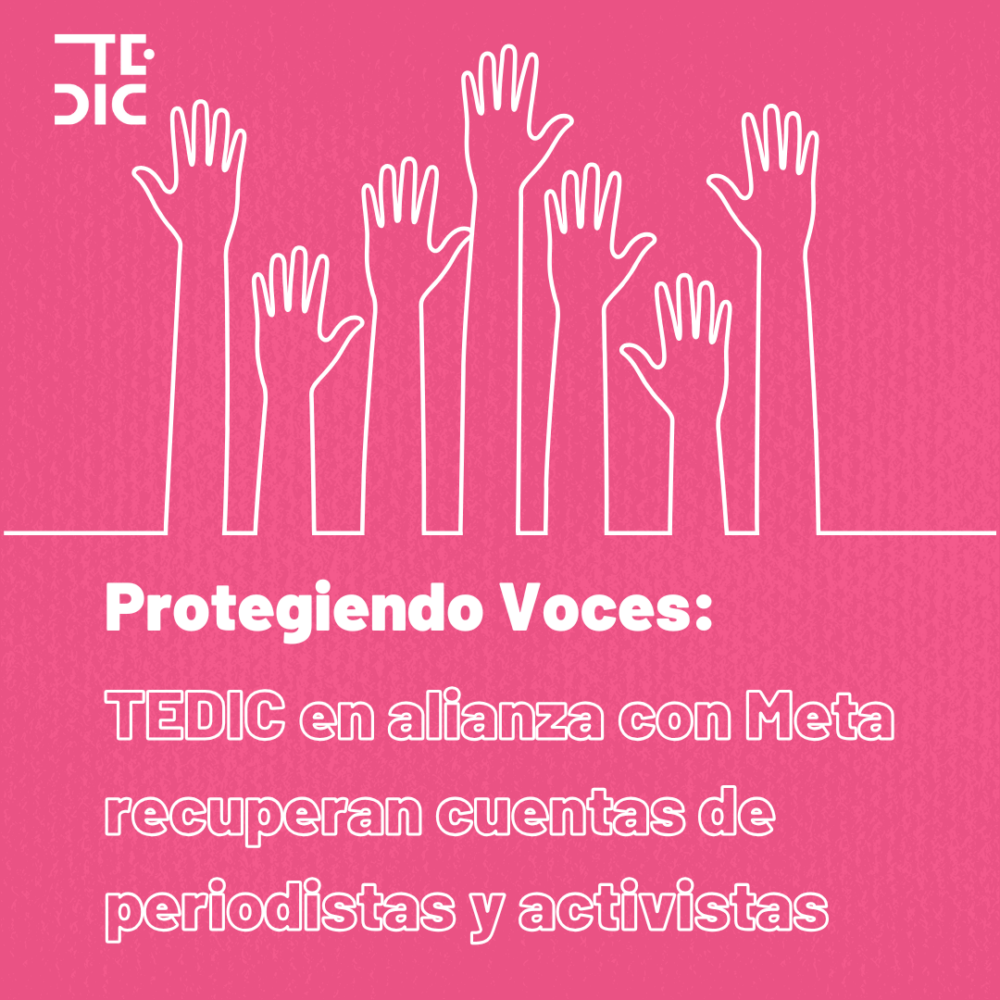 Defending those who defend us
Defending those who defend us